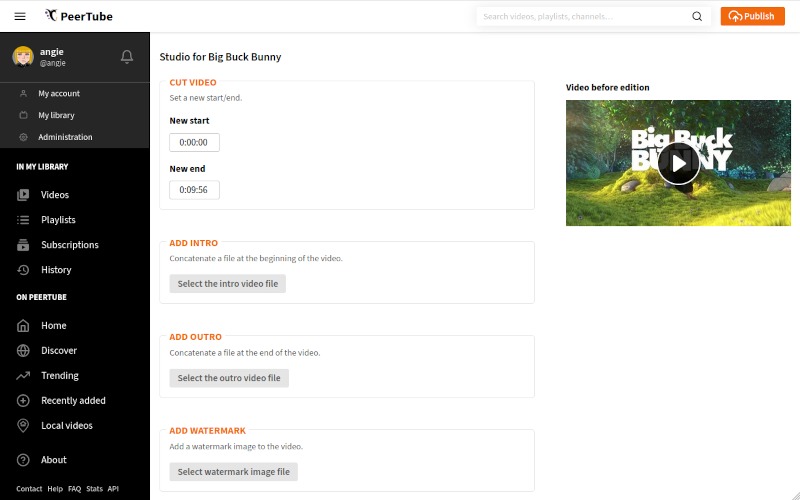PeerTube, a decentralized YouTube alternative launched five years ago, has reached a development milestone with the release of version 5. The tool lets users create a federated video platform based on live and peer-to-peer streaming.
Framasoft, a non-profit which maintains this free and open source project along with dozens of others, made the announcement, noting that this is the fifth release in as many years, with the latest one starting to take shape in February when user interface and mobile video player received improvements.
Other point releases in the meantime introduced light video editing via the Studio tool, and “Twitch-like” replay of live streams. Automated import of videos from YouTube and Vimeo was also added, along with better display of live streams on external sites.

Now the major, v5 release is completing a year of development by focusing mainly on security improvements. The announcement says that the work on the file system done to secure internal and private videos lays the groundwork for upcoming features that users are asking for the most.
There’s good news also for live streamers with limited resources in terms of server space and bandwidth, since PeerTube has started storing live streams in the cloud via an object storage system.
One Time Password (OTP) as a 2-factor authentication method is another new feature, along with additions to the API that allow for creation of what Framasoft says are “more powerful plugins.” Still on the subject of plugins, Live Chat and easier plugin setup are both being developed and are expected to be added to PeerTube soon.
Probably surprisingly to outsiders to free and open source communities, one of the weak points of many projects in this ecosystem – and some of them serve large portions of the internet infrastructure – is that they are developed by only a handful of programmers.
And PeerTube, which now has hundreds of thousands of users who have shared more than 850,000 videos, has only one developer.













